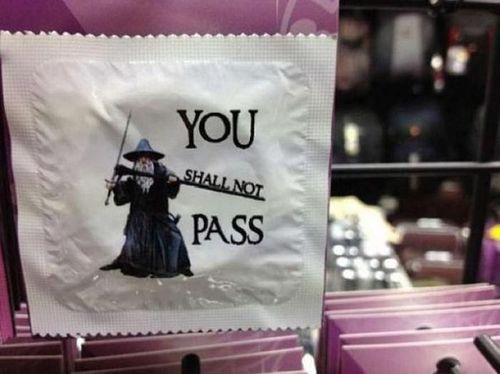Mere weeks before the release of the long-anticipated film version of The Hobbit, the estate of author J.R.R. Tolkien has sued the film’s producers claiming they are overstepping their rights when it comes to merchandising the property and The Lord of the Rings.
In an $80 million lawsuit filed Monday in U.S. District Court in Los Angeles and obtained by The Hollywood Reporter, the Tolkien estate and its book publisher HarperCollins claim Warner Bros., its New Line subsidiary and Rings/Hobbit rightsholder Saul Zaentz Co. have infringed the copyright in the famous books and breached a contract. The crux of the suit is the estate’s contention that a decades-old rights agreement entitles the studio to create only “tangible” merchandise based on the books, not an “online slot machine” or other digital exploitations that the estate calls highly offensive.
Read the full lawsuit here.
“The original contracting parties thus contemplated a limited grant of the right to sell consumer products of the type regularly merchandised at the time (such as figurines, tableware, stationery items, clothing and the like,” the complaint states. “They did not include any grant of exploitations such as electronic or digital rights, rights in media yet to be devised or other intangibles such as rights in services.”
Hence, the Lord of the Rings: Fellowship of the Ring: Online Slot Game, which the estate claims it learned about via a spam e-mail to its atttorney in Sept. 2010, caused it to investigate the scope of its rights agreement. The estate says it then learned that Warner Bros. is planning traditional slot machines with Rings characters, as well as other products outside the limited scope of its original rights deal.
It wants an injunction against the infringing games and other products that exceed the scope of the rights grant, as well as more than $80 million in damages.
The suit lays out the history of merchandising rights associated with Lord of the Rings and Hobbit, which began in 1969 with the Zaentz Co. Specifically, the suit alleges, the contract reserved rights “not herein specifically granted.”
But Warners and the other defendants have “with increasing boldness, engaged in a continuing and escalating pattern of usurping rights to which they are not entitled,” the estate argues. For example, their rights include only “tangible” merchandise, not downloadable video games available only on mobile devices or tablets or Facebook. “Defendants also have asserted and continue to assert that they have rights relating to a wide variety of goods and services beyond ‘articles of tangible personal property’ and have registered trademarks and/or filed ‘intent to use’ applications in those same categories, including without limitation hotels, restaurants, travel agencies, ringtones, online/downloadable games and housing developments – categories of rights which plainly have not been granted to them.”
The estate lists several categories of goods but it is especially peeved about new gambling games developed with story elements from Lord of the Rings. “Not only does the production of gambling games patently exceed the scope of defendants’ rights, but this infringing conduct has outraged Tolkien’s devoted fan base, causing irreparable harm to Tolkien’s legacy and reputation and the valuable goodwill generated by his works.”
The suit cites fan uproar over the Rings casino gaming, with many believing the estate had assented to the commercialization of the Tolkien works. Lengthy settlement discussions have gone nowhere, the suit claims.
Of course, this isn’t the first time the Tolkiens have tangled with the studio behind the Rings films. A previous lawsuit over profits from the successful trilogy was settled. And earlier this month, Warner Bros. was on the other side of a lawsuit accusing a small production company of trademark infringement over its upcoming film Age of the Hobbits.
Warner Bros. declined comment.
The complaint, filed by Bonnie Eskenazi, Elisabeth Moriarty and Ricardo Cestero at L.A.'s Greenberg Glusker firm, alleges causes of action for copyright infringement, breach of contract and declaratory relief.
E-mail: Matthew.Belloni@thr.com
Twitter: @THRMattBelloni

